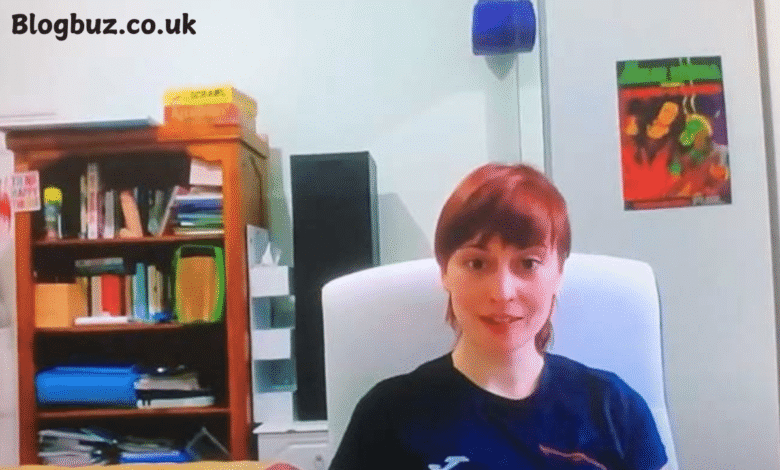Yvette Amos: The Viral BBC Wales Interviewee and Her Unexpected Journey

In early 2021, the name Yvette Amos unexpectedly became a trending topic across the UK and beyond. What began as a serious interview about unemployment during the COVID-19 pandemic quickly transformed into one of the most memorable viral media moments. Viewers were less focused on her words and more on what was spotted in the background of her Zoom interview — an explicit item sitting casually on a shelf. While humorous to many, the event sparked discussions on media professionalism, privacy in the age of remote work, and the complexities of internet fame. This article delves deeper into Yvette Amos, her viral moment, her professional background, and what her story reveals about modern society’s relationship with the media and online culture.
Who Is Yvette Amos?
Yvette Amos is a woman from Wales who found herself thrust into the spotlight following a BBC Wales Today interview in January 2021. She appeared on a news program to discuss her experience of unemployment during the pandemic, a reality that millions faced at the time.
Before this unexpected fame, Yvette Amos was largely unknown outside of her professional and academic circles. Reports suggest she had worked in hospitality and pursued academic research, with some of her work in public health and alcohol management appearing in research publications. This paints a picture of someone living an ordinary life until an unplanned event thrusts her into the public eye.
The Infamous BBC Wales Interview
The viral moment that made Yvette Amos a household name occurred during a video interview on BBC Wales Today. With the pandemic forcing remote broadcasting, guests and experts frequently joined live programs from their homes. In Yvette’s case, she sat in front of a bookshelf — seemingly a harmless and relatable backdrop.
However, viewers quickly noticed something unusual: what appeared to be a sex toy sitting openly on one of the shelves. Screenshots spread like wildfire across social media, with many users zooming in and sharing memes of the scene. Within hours, Yvette Amos had gone viral, not for her thoughtful comments on unemployment, but because of the object in her background.
Media and Public Reactions
The public response to the Yvette Amos incident was overwhelmingly amused. Major news outlets, including The Independent, NDTV, and AOL News, covered the story. Twitter threads, memes, and jokes flooded the internet, cementing her moment in pop culture history.
But the reaction was not just laughter. Some commentators pointed out the double standards in how women are judged more harshly in the media. Others suggested that the public should focus on her message about unemployment rather than ridiculing her personal belongings. In this way, the incident highlighted not only the internet’s appetite for humour but also broader issues of gender, media framing, and respect.
Yvette Amos and Academic Work
While the viral moment dominates her public identity, Yvette Amos also has a professional background that deserves recognition. Academic records indicate that she contributed to public health research, including studies on the management of alcohol intoxication services in city centres. Her name appears on platforms such as ResearchGate, where her published work touches on health economics and community safety.
This aspect of her life provides important context: Yvette is not just “the woman with the viral Zoom background.” She is also a contributor to meaningful research that addresses real social issues, such as health risks associated with nightlife and alcohol use.
The Human Side of the Story
For Yvette Amos, the sudden fame likely came with mixed feelings. On one hand, she became an overnight internet sensation, joining the ranks of countless viral personalities. On the other hand, her profound message about unemployment was overshadowed by humour at her expense.
This raises important questions: How much control do we really have over our online presence? In the era of remote work, where personal and professional spaces often collide, can anyone truly protect their privacy from accidental exposure? Yvette Amos became an example of how one small detail can shift an entire narrative.
Lessons from the Yvette Amos Moment
The story of Yvette Amos offers several takeaways:
- The Power of Backgrounds: In an age of Zoom calls and remote interviews, what sits behind us matters almost as much as what we say. Yvette’s case underscores the importance of being mindful of surroundings.
- The Internet’s Memory: Once a moment goes viral, it rarely disappears. Screenshots of Yvette’s interview continue to circulate years later, demonstrating the lasting impact of digital footprints.
- Balancing Humour and Respect: While many found the moment funny, others pointed out that reducing Yvette to a joke was unfair. A single object overshadowed her contributions as a researcher and her message on unemployment.
- Unintended Fame: Unlike celebrities, Yvette did not seek attention. Her experience highlights the unpredictable nature of viral fame and its ability to disrupt ordinary lives.
Yvette Amos in Popular Culture
The viral incident cemented Yvette Amos as a quirky piece of internet history. Her name often resurfaces in “Zoom fails” lists, discussions of media gaffes, and online compilations of funny broadcast moments. For some, she represents the humour of lockdown life, when people around the world were adapting to new norms of communication.
This aspect of pop culture also reflects a broader societal shift: private homes have become public stages during the pandemic. Yvette’s story is just one of many that illustrate how unexpected details in the background of video calls became topics of fascination and entertainment.
Beyond the Viral Clip: Reclaiming Identity
While the viral story may always be attached to her name, Yvette Amos represents more than a fleeting internet joke. She is an academic contributor, a professional, and someone who wants to share her perspective on the topic of unemployment.
The internet often oversimplifies people into single moments or memes, but Yvette’s life is far richer than that. Recognising this allows us to humanise her story rather than reducing it to a mere laugh.
Conclusion
The case of Yvette Amos is a fascinating study of how quickly ordinary individuals can become extraordinary internet figures. What began as a straightforward BBC Wales interview on unemployment became a viral sensation due to a background detail. Yet, behind the jokes and headlines lies a woman with real experiences, professional contributions, and a story worth understanding.
You May Also Read: Single Mom Birthday Cake Ex Husband: A Viral TikTok Story That Sparked Controversy




